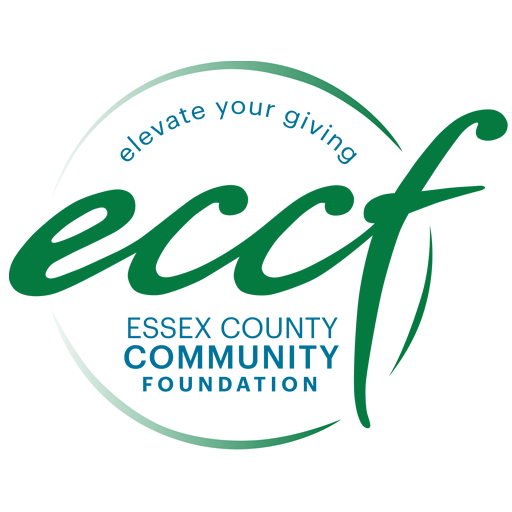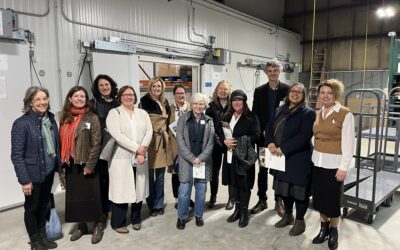
HAWC, TEK Collaborative and Verizon have teamed up for a program to distribute free computers and Wifi to people experiencing domestic violence.
By Michelle Xiarhos Curran
ECCF Communications Writer
One of the first people to sign up for a program offering free computers and internet access to clients at Healing Abuse Working for Change (HAWC) – a leading domestic violence agency serving Essex County – was a single mom who had recently left an abusive relationship.
She and her daughter were staying with a relative, who could offer them a place to stay, but didn’t have access to the internet or a computer, making it near impossible for this mother to try and get ahead.
“At night, she would sit and stress,” said Sara Stanley, executive director at HAWC. “She knew her job wasn’t paying her enough money to make it on her own and that’s when her anxiety would kick in. She would hear those things that her ex used to say to her.”
You’re not smart enough. You’re not going to be able to make it on your own. You’re going to have to come crawling back.
But when she was given a secure laptop of her own, with mobile internet access (critical for someone seeking security and safety after living through an abusive relationship), she was able to channel her anxiety into action. And things started to change.
“She could work on updating her resume and doing a job search,” Stanley said. “Within just a few months, she secured a better paying job as a lab technician, and this is totally changing the game.”
And with each success, this mother is becoming more confident that she CAN make it on her own.
“She’s modeling that success and confidence for her daughter,” said Stanley. “And what we see, cumulatively, is that we’re really investing in our whole community.”
Supported by an Essex County Community Foundation Advancing Digital Equity Partnership Grant, this transformational digital equity program is a partnership between HAWC; TEK Collaborative, a nonprofit e-recycler incubated at ECCF; and Verizon.
“What I love about this program is that it’s helping us execute on a transformational leverage point,” said Stanley, who spoke about the program at a March meeting of ECCF’s digital equity donors. “Digital equity is one of the most impactful investments we can make, and it’s empowering people to find stability and to thrive.”
Within four months, 85 people were enrolled in the program.
“I know you know the old adage: you give a man a fish, he eats for a day, teach him to fish and he eats for a lifetime,” said Stanley. “What this program demonstrates is that a laptop and internet service is the literal fishing pole, in many cases. We’re seeing, as a philanthropic community, that if we invest in the right places, we can help people thrive instead of continuing to support things that are band aids.”
The HAWC program was one of six partnerships awarded a total of more than $300,000 by ECCF to pilot innovative programming to bridge the digital divide, a longtime challenge that was exacerbated during COVID.
The partnership grants are part of ECCF’s Advancing Digital Equity initiative, a data-driven, community-centered, $3 million commitment to empower all residents with the access, education and equipment necessary to successfully navigate our digital world.
“We’re super thankful to folks like Sara and the team at HAWC who are saying, ‘this is important to our mission and we’re willing to roll up our sleeves and work with you to do this,’” said Kate Machet, ECCF’s director of strategic initiatives and government relations. “We’re humbled to be able to be a participant in this with you all.”
Machet spoke about how partnership grants like this help to foster sustainable solutions to our biggest challenges by inspiring learning, collaboration and innovation among partners that may not have worked together before. This is a critical piece of ECCF’s work in systems change, which requires many stakeholders working together to tackle root causes.
This includes donors who are willing to invest in solutions that are evolving and long-term.
“Systems change donors are a special breed,” Stacey Landry, ECCF’s vice president for advancement and philanthropic services, told donors. “You’re willing to come along with us to be that sort of risk capital and bring that piece of the puzzle to the table that allows us to go and innovate, to change and to learn as we grow.”
These investments are absolutely critical, not only to innovate new solutions – like the HAWC program for digital equity – but to help build the capacity of nonprofits to sustain this work and attract continued funding for the future.
“The grantee partners that we’ve worked with, like HAWC and beyond, through these pilot programs, have received more than $6 million of additional funding into the community,” said Landry. “That’s come from philanthropy. That’s come from state and federal funding. And you know that means that these programs are here to stay.”
And this process – the relationships, the collaboration and the capacity building – is how the system continues to grow, to iterate and to move forward together.
“And that’s how we reach this level of community resiliency,” said Landry. “Communities can look to the future in a different way together, so that when we see something like climate change or the next big challenge, or big opportunity, we’re starting from a place of strength and we have the muscle to start to move forward in a way where we can see those communities thrive overall.”


